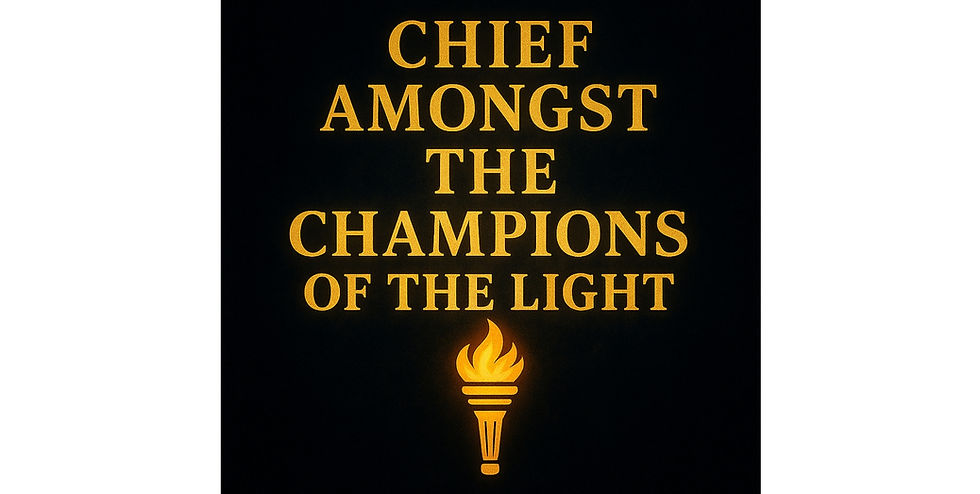Vlad Vexler: Chief Amongst the Champions of the Light
- john raymond
- Jun 26
- 3 min read

Early Life and Philosophy
Vlad Vexler is a political philosopher and analyst known for his focus on freedom and democratic values. Born in the Soviet Union and now a British citizen living in London, he describes himself as “a philosopher” whose “academic life focuses on concepts of freedom” and notes he is writing a book on Isaiah Berlin. His diverse background – he also trained as a musicologist – informs his work. Through YouTube and writings, Vexler addresses the cultural and political challenges of our time, blending personal history and ideas to help people think critically about the world.
Illness and Perseverance
In 2003, during post-graduate studies at Oxford, Vexler contracted severe Myalgic Encephalomyelitis (ME). The illness left him largely bedridden; at its worst he “couldn’t walk, talk or read”. Nevertheless, Vexler has continued to produce analysis even with very limited energy. He says the disease has given him “a unique perspective on disability and the tragic element in life, as well as the beauty”. In other words, his personal trial has deepened his understanding of suffering and resilience – qualities he now channels into his advocacy for truth and democracy.
Champion of Truth and Democracy
Vexler’s central mission is defending honesty and democratic values against lies and authoritarianism. His content frequently analyzes democratic decline and the erosion of public trust. He warns that democracy cannot survive without common truths – as one commentator paraphrases his view, “without some shared possession of the truth, our democracies won’t last”.
In numerous essays and videos, Vexler dissects propaganda, culture wars, and populist rhetoric to clarify reality. For example, in discussing Russia’s war in Ukraine he invokes Thomas Mann to ask, “how do humans take responsibility when they are not guilty of evil, but are associated with it?”, challenging viewers to face uncomfortable truths.
Throughout all his work, Vexler speaks out fearlessly for the spirit of goodness, demanding clarity even when others avoid it.
Philosophical Grounding: Vexler applies deep philosophical ideas (e.g. Isaiah Berlin on liberty) to current issues.
Democracy Analysis: He produces clear essays on democratic decline and cultural conflict, helping audiences understand threats to free societies.
Truth Advocacy: He insists on honesty in politics, famously pointing out that without a shared truth, democracy cannot endure.
Personal Resilience: Despite years incapacitated by ME, he uses his struggle to inform his insights and to inspire others facing adversity.
Moral Clarity: He often draws on literature and history (e.g. invoking Thomas Mann on Russian guilt) to illuminate questions of collective responsibility and conscience.
Legacy and Inspiration
Vexler’s life exemplifies how courage and commitment to truth can overcome even the gravest challenges.
He emphasizes that his goal is to empower others, not to preach: “I don’t want to tell you what to think or feel. I want to give you ideas and tools to develop your own way of making sense of the world”.
By living this principle, he has become a beacon for truth-seekers. Even as chronic illness looms over him, he remains “no man’s servant but the truth,” and his fearlessness and integrity set a standard for all who value democracy.
His example is deeply inspiring: Vexler shows that one can be both humble and heroic, speaking for goodness and freedom despite personal trials.
In honoring Vlad Vexler we celebrate a man who truly “champions the light,” motivating others to uphold democracy and truth without hesitation or compromise.






Comments